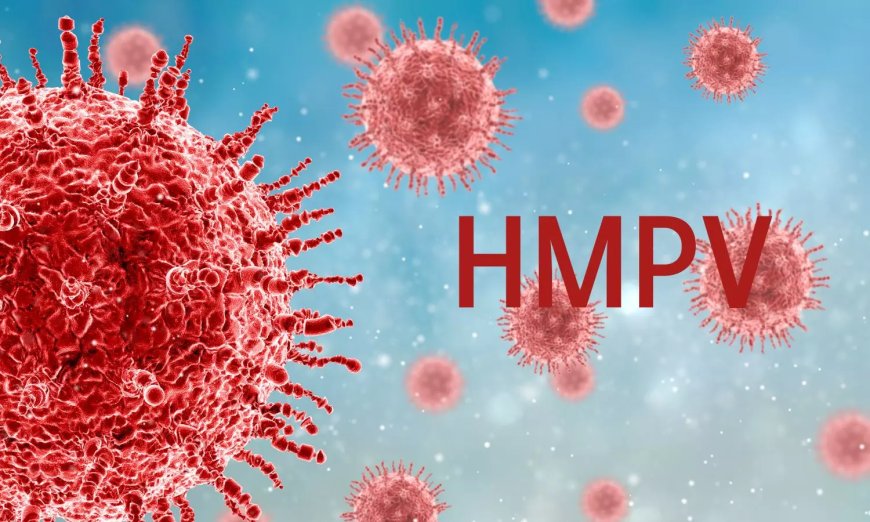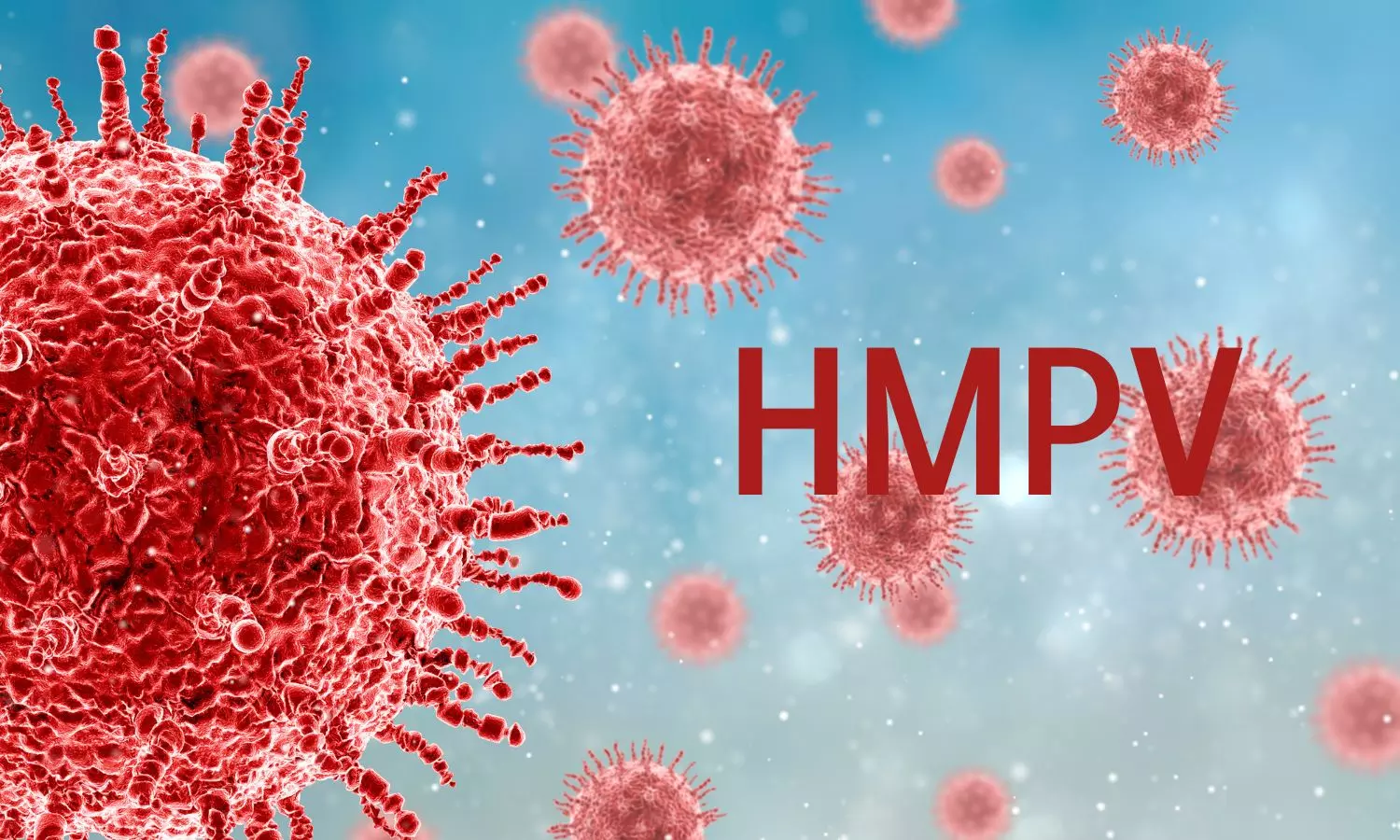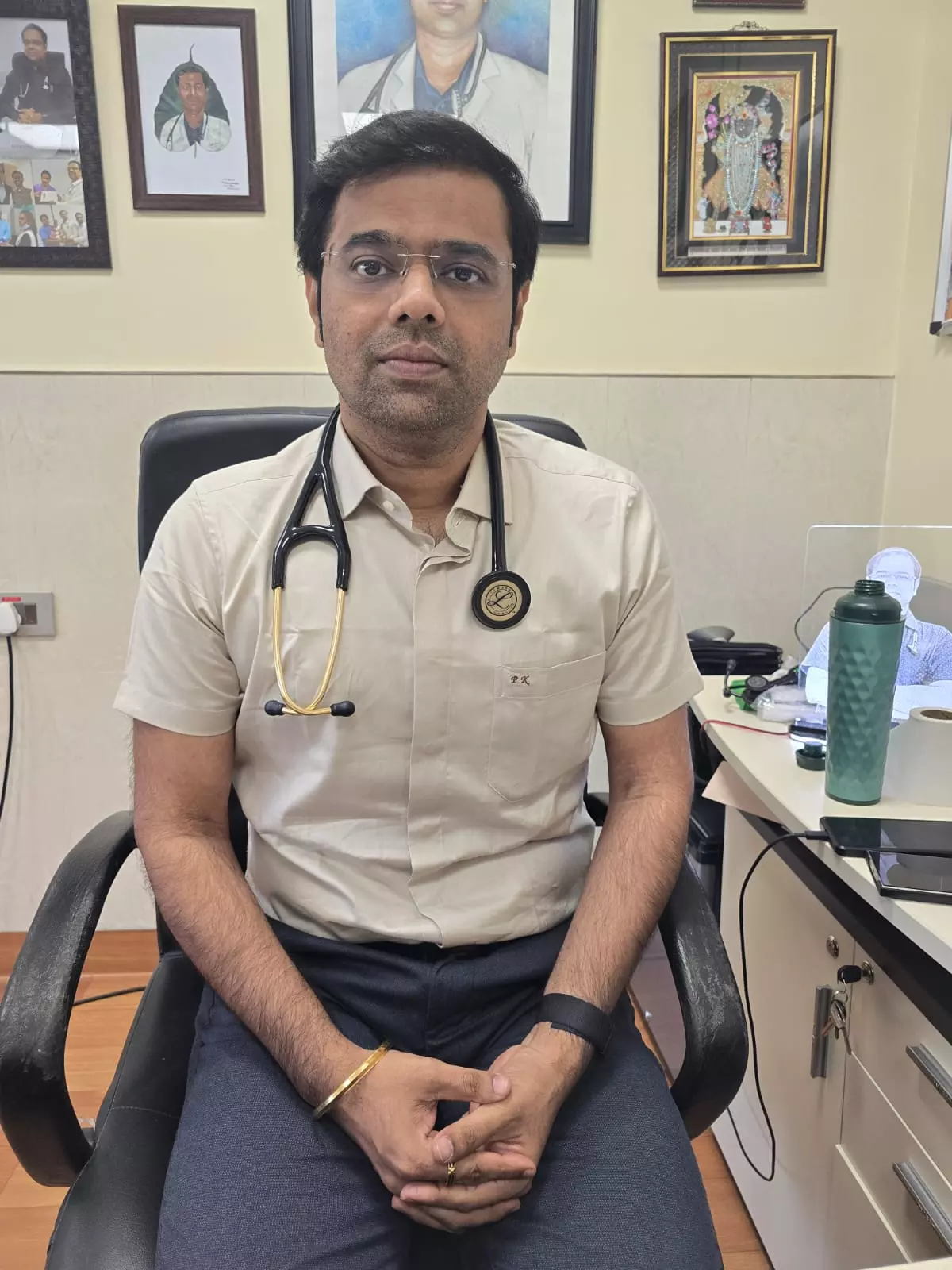HMPV: Why immunocompromised individuals are at greater risk
Even as the world is still grappling with the aftermath of the COVID-19 pandemic, a new virus has surfaced, causing scare among the public and concern among health experts. Human Meta Immunovirus (HMPV) may sound menacing, but according to Dr. Praveen Kuuumar Kulkarni, Senior Consultant Physician at KIMS Hospital, “It’s an age-old virus, discovered in 2001 in the Netherlands.” What is HMPV? HMPV is a negative RNA virus belonging to the Paramyxoviridae family. It presents similar to the flu, with symptoms like cough, stuffiness of the nose, frequent sneezing, and rhinitis. “It mainly affects the upper respiratory tract infections,” explains Dr. Kulkarni. “Only a few cases progress to lower respiratory tract infections, mostly in individuals with compromised immune systems.” Is HMPV a Cause for Concern? While HMPV is not new, its resurgence has raised eyebrows. Dr. Kulkarni reassures, “There’s no need to panic. It’s a self-limiting disease, and most people recover within 1-2 weeks.” However, he emphasises the importance of precautions, especially for high-risk individuals like the elderly, young children, and those with pre-existing conditions. Symptoms to Watch Out For Dr. Kulkarni lists the common symptoms associated with HMPV: · Cough (80-90%) · Stuffy nose · Frequent sneezing · Rhinitis · Vague myalgia · Redness of eyes (less common) · Difficulty swallowing · Throat congestion · Hoarse voice Treatment and Prevention Since there’s no specific antiviral or vaccination for HMPV, treatment focuses on symptomatic relief, says Dr. Kulkarni. He recommends the following methods to treat the condition: · Rest · Hydration · Decongestants · Antiviral medications (in some cases) · Homemade remedies like Tulsi, Pudina, Black Pepper, and Ajwain Tips to prevent HMPV · Hand washing · Mask wearing · Avoiding close contact with infected individuals · Good nutrition and hydration · Fruits and vegetables with antioxidant properties (e.g., dragon fruit, papaya, pomegranate, avocado) How Long Does HMPV Last? The incubation period is 5-9 days. Most people recover within 1-2 weeks, but some may experience prolonged symptoms (up to 3 weeks) if they develop lower respiratory tract infections, says the internal medicine specialist. Fatalities and Recovery Rate Dr. Kulkarni reassuringly notes, “There have been no fatalities reported till date.” He attributes the improved recovery rate to increased immunity post-COVID-19 vaccination and herd immunity. Praveen Kulkarni, Senior Consultant & Internal Medicine Specialist at KIMS Hospital Sharing his insights, Dr. Kulkarni says that he has observed that the immune system has improved in recent days, and patients are responding to treatment faster. “Recovery rates are better, even among high-risk patients,” he says, adding, “Mortality rates have drastically decreased.” Dr Kulkarni says, “While HMPV may seem alarming, it’s essential to understand its symptoms, treatment, and prevention strategies. By taking precautions and maintaining good hygiene, we can mitigate its spread as HMPV is manageable.”


Even as the world is still grappling with the aftermath of the COVID-19 pandemic, a new virus has surfaced, causing scare among the public and concern among health experts. Human Meta Immunovirus (HMPV) may sound menacing, but according to Dr. Praveen Kuuumar Kulkarni, Senior Consultant Physician at KIMS Hospital, “It’s an age-old virus, discovered in 2001 in the Netherlands.”
What is HMPV?
HMPV is a negative RNA virus belonging to the Paramyxoviridae family. It presents similar to the flu, with symptoms like cough, stuffiness of the nose, frequent sneezing, and rhinitis. “It mainly affects the upper respiratory tract infections,” explains Dr. Kulkarni. “Only a few cases progress to lower respiratory tract infections, mostly in individuals with compromised immune systems.”
Is HMPV a Cause for Concern?
While HMPV is not new, its resurgence has raised eyebrows. Dr. Kulkarni reassures, “There’s no need to panic. It’s a self-limiting disease, and most people recover within 1-2 weeks.” However, he emphasises the importance of precautions, especially for high-risk individuals like the elderly, young children, and those with pre-existing conditions.
Symptoms to Watch Out For
Dr. Kulkarni lists the common symptoms associated with HMPV:
· Cough (80-90%)
· Stuffy nose
· Frequent sneezing
· Rhinitis
· Vague myalgia
· Redness of eyes (less common)
· Difficulty swallowing
· Throat congestion
· Hoarse voice
Treatment and Prevention
Since there’s no specific antiviral or vaccination for HMPV, treatment focuses on symptomatic relief, says Dr. Kulkarni. He recommends the following methods to treat the condition:
· Rest
· Hydration
· Decongestants
· Antiviral medications (in some cases)
· Homemade remedies like Tulsi, Pudina, Black Pepper, and Ajwain
Tips to prevent HMPV
· Hand washing
· Mask wearing
· Avoiding close contact with infected individuals
· Good nutrition and hydration
· Fruits and vegetables with antioxidant properties (e.g., dragon fruit, papaya, pomegranate, avocado)
How Long Does HMPV Last?
The incubation period is 5-9 days. Most people recover within 1-2 weeks, but some may experience prolonged symptoms (up to 3 weeks) if they develop lower respiratory tract infections, says the internal medicine specialist.
Fatalities and Recovery Rate
Dr. Kulkarni reassuringly notes, “There have been no fatalities reported till date.” He attributes the improved recovery rate to increased immunity post-COVID-19 vaccination and herd immunity.

Praveen Kulkarni, Senior Consultant & Internal Medicine Specialist at KIMS Hospital
Sharing his insights, Dr. Kulkarni says that he has observed that the immune system has improved in recent days, and patients are responding to treatment faster. “Recovery rates are better, even among high-risk patients,” he says, adding, “Mortality rates have drastically decreased.”
Dr Kulkarni says, “While HMPV may seem alarming, it’s essential to understand its symptoms, treatment, and prevention strategies. By taking precautions and maintaining good hygiene, we can mitigate its spread as HMPV is manageable.”






































